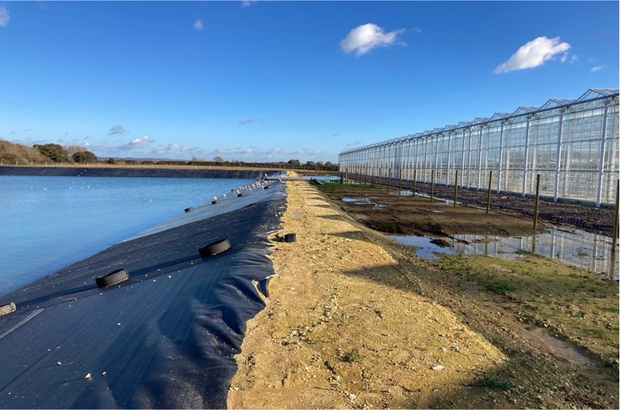Are you passionate about making a difference in water conservation and management? Imagine having the resources to turn your ideas into impactful projects.
By applying for water management grants, you can secure the funding needed to tackle critical issues like water scarcity, pollution, and sustainability. Whether you’re an individual, a nonprofit, or a community group, understanding how to effectively apply for these grants can empower you to create real change.
Dive into this comprehensive guide, and discover the steps to unlock opportunities that could transform your water management initiatives. Let’s turn your vision into reality—starting now!
Research Funding Opportunities
Finding the right water management grant can feel like searching for a needle in a haystack. Yet, the key lies in understanding where to look and how to tailor your application. Researching funding opportunities is crucial for discovering the grants that perfectly match your project’s objectives. By diving deep into available resources, you can identify financial support that aligns with your goals.
Explore Government Websites
Government websites are treasure troves of information. They often list available grants and provide detailed criteria for applicants. Spend time navigating these sites, and you’ll find specific opportunities related to water management.
Don’t just skim through the listings. Read the fine print to understand eligibility requirements. This will save you time and effort, ensuring you only apply to grants that are a good fit.
Leverage Online Databases
Online databases like Grants.gov offer a centralized hub for funding opportunities. Use filters to narrow down search results to water management grants. This targeted approach helps you identify relevant options quickly.
Have you ever tried using advanced search options? They can significantly reduce the noise and direct you to grants that match your criteria. This technique can be a game-changer in your research process.
Connect With Local Organizations
Local organizations often have insider knowledge about grants in your area. Networking with these groups can uncover opportunities you might not find online. They can also provide insights into the application process.
Consider attending local events or workshops. These gatherings can open doors to collaborations and shared knowledge, enhancing your grant application strategy.
Utilize Social Media Platforms
Social media platforms can be unexpected sources of information. Follow organizations related to water management, as they often share grant announcements and deadlines. Staying updated through social media can give you a competitive edge.
Have you ever thought about joining online forums or groups? Engaging in these communities can lead to discussions about new funding opportunities and application tips.
Seek Professional Guidance
Professional consultants or grant writers can offer valuable advice. They have experience in the field and can guide you toward suitable grants. Their expertise can also help refine your application, increasing your chances of success.
Investing in professional help might seem costly, but it can pay off in the long run. Have you considered the potential return on investment? A successful grant application can significantly benefit your water management project.
As you explore these research avenues, consider what aligns best with your project’s vision. Which method resonates most with you? Dive in and start discovering the opportunities that will propel your water management initiatives forward.

Prepare Necessary Documentation
Applying for water management grants requires careful preparation. A critical step is organizing your documentation. Proper documentation supports your application. It shows your commitment and readiness for the project. Below are key documents you need to prepare.
Project Proposal
Your proposal outlines the project objectives. It highlights your strategy to achieve them. Include clear goals, timelines, and expected outcomes. A well-structured proposal attracts attention. It increases the chance of grant approval.
Budget Plan
A detailed budget is essential. It demonstrates financial planning and resource allocation. Break down costs into specific categories. This shows you understand project funding needs.
Supporting Evidence
Include research data and case studies. They provide context for your project. They also prove the necessity and impact of your proposed solutions. Strong evidence supports your application.
Letters Of Support
Gather letters from stakeholders or partners. They strengthen your application. They show community backing and collaboration. Support letters enhance credibility and trust.
Organizational Background
Provide a summary of your organization. Highlight past projects and achievements. This shows experience and capability. It assures grant providers of your reliability.
Compliance Documents
Ensure all regulatory requirements are met. Include permits and licenses. This avoids legal challenges. Compliance is crucial for smooth project execution.
Application Form
Fill out the application carefully. Double-check for errors or omissions. Accuracy is key. A complete form reflects attention to detail.
Submit Your Application
Explore how to apply for water management grants. Gather essential documents and ensure they meet the grant criteria. Submit your application on the official platform, following all guidelines carefully.
Submitting your application for a water management grant can feel like a daunting task, but with the right preparation, it can be a straightforward process. This is your chance to showcase your project and demonstrate its potential impact. Ensure that every detail is polished and aligned with the grant’s requirements. Let’s break down the steps to make your submission stand out.Review The Application Guidelines
Before hitting the submit button, re-read the application guidelines. Each grant has specific requirements that must be followed precisely. Missing a crucial detail here can lead to disqualification. Consider making a checklist based on these guidelines. This way, you can ensure every aspect of your application is covered. Remember, a complete application is your first step towards success.Double-check Your Documents
Ensure all necessary documents are included and correctly formatted. This might include financial statements, letters of support, or project plans. Each document should be clear, concise, and free of errors. I once submitted an application without checking the file formats, only to realize they were unreadable by the grant committee. Don’t make the same mistake. Verify everything before submission.Proofread For Clarity And Precision
Errors can distract from your message. Proofread your application multiple times. You might even want to ask someone else to review it with fresh eyes. Clear and precise language helps convey your ideas effectively. Imagine reading your application as if you were the grant reviewer. Does it make sense? Is it compelling?Submit Before The Deadline
Timing is crucial. Aim to submit your application well before the deadline. This allows for any last-minute checks or unforeseen technical issues. Submitting early also shows that you are organized and proactive. These are qualities that reviewers appreciate. It gives you a buffer to deal with any unexpected hiccups.Confirm Submission
After submitting, ensure you receive a confirmation email or message. This is your proof that your application was received. Keep this confirmation safe. It’s your backup in case there are any disputes about whether your application was submitted on time.Reflect On The Process
Once submitted, take a moment to reflect on the process. What did you learn? How can you improve your approach for future grants? Think about how each step contributed to the final application. This reflection can provide valuable insights for your next opportunity. Submitting your application is a significant milestone in your grant journey. Approach it with attention to detail and confidence. Your hard work and dedication will shine through.
Follow Up And Track Progress
Applying for water management grants involves several important steps. One crucial step is the follow-up process. Following up ensures that your application stays on track. It helps you maintain communication with grant providers. Tracking progress allows you to measure the success of your efforts.
Follow Up With Grant Providers
Maintain regular contact with grant providers. Send polite inquiries about your application status. This shows your commitment and keeps you informed. Ask if additional information is needed. Clear communication can prevent misunderstandings.
Record Key Dates And Deadlines
Keep a detailed calendar of important dates. Mark deadlines for submission, reviews, and reports. This helps you stay organized and proactive. Missing deadlines can jeopardize your application. Use reminders to ensure timely actions.
Monitor Project Milestones
Set clear milestones for your project. Regularly review these milestones to track progress. Adjust your strategies if necessary. This keeps the project aligned with grant objectives. Monitoring helps in identifying areas needing improvement.
Evaluate Success Metrics
Define specific success metrics for your project. Regularly evaluate these metrics to measure outcomes. Success metrics provide valuable insights into project effectiveness. Use them to report progress to grant providers. This fosters transparency and trust.
Document Everything
Keep detailed records of all communications and actions. Documenting helps in creating a comprehensive project history. It serves as evidence of your efforts and progress. Organized documentation simplifies reporting and audits. This practice supports future grant applications.

Conclusion
Securing a water management grant can improve your project. Follow the steps carefully. Research thoroughly before applying. Understand the requirements fully. Prepare all necessary documents. Submit your application on time. Review it for accuracy. Seek help if needed. Grants can provide essential funding.
They support vital water projects. Stay persistent and patient in your efforts. Always keep improving your application skills. Success can lead to impactful water solutions. Your dedication can make a difference. Keep learning and adapting. Your hard work may pay off soon.
Good luck on your grant journey!

